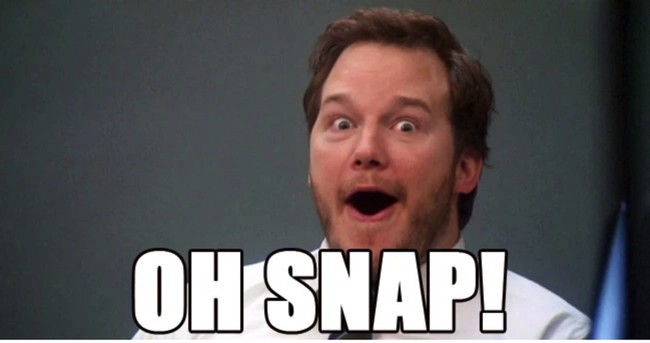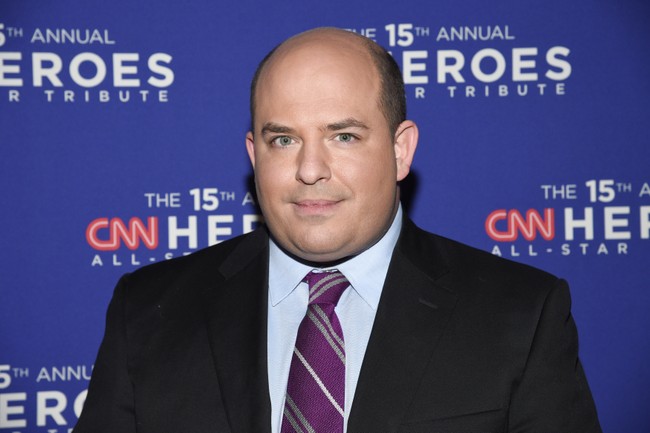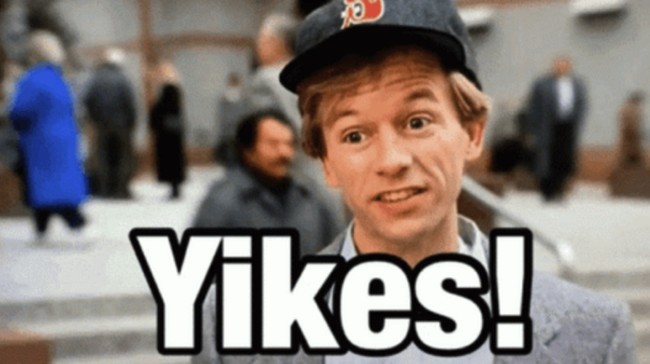
bgr.com
We tested 67 portable chargers to find the best ones
If you have a smartphone, you need a portable charger... and we can guarantee that every single person reading this right now has a smartphone. As impressive as battery life has gotten in recent years, you'll always run out of juice at the most inopportune times. That's where portable chargers come in, and the expert product reviewers at BGR tested 67 different models to find the best of the best.
Our top picks
Best overall: Anker Zolo Power Bank
Runner-up: INIU BI-B41 Portable Charger
Best for Apple users: Satechi Quatro Wireless Power Bank
Best MagSafe option: Anker 633 MagGo Magnetic Battery Pack
Best option with a built-in plug: Lezchi PB147AC Ultra Slim Portable Power Bank
You absolutely cannot go wrong with any of the options above. If you want to learn more about what makes each one so impressive, you'll find our mini-reviews below.
1. Best overall: Anker Zolo Power Bank
Anker Zolo Power Bank
Rating: 5 Stars
Go Beyond with 20,000mAh: Carry the power you need to charge your iPhone 15 up to 4 times or your Samsung S24 3.79 times, perfect for extended travel and long days.30W Two-Way Fast Charging: Charge quickly with 30W output and recharge just as fast with 20W input, keeping your devices ready in no time. Boost an iPhone 15 from 0 to 57% in just 30 minutes.Durability on Demand: Features a 5.98-inch built-in USB-C cable that's not only convenient but also extremely durable, designed to withstand over 10,000 bends.
BGR may receive a commission
BGR may receive a commission
Shop Now
Pros: Big capacity, compact design, 30W fast charging, built-in USB-C cable, LCD screen, Anker quality
Cons: None
If you want the best of the best, you can stop right here and just order yourself an Anker Zolo Power Bank.
This portable charger is quite compact for a model with 20,000 mAh of capacity. That's enough to charge any smartphone many times over before the Zolo needs to be recharged itself. Also, this model supports fast charging speeds of up to 30W. That means it'll charge just as fast as if you plugged your smartphone or other device directly into the wall.
We definitely appreciate the LCD screen on this model, which shows the remaining charge in the power bank. There's also a built-in USB-C cable to connect to most devices, as well as two other ports. That means you can charge your iPhone, your friend's Android phone, and your Bluetooth earbuds all at the same time.
Last but not least, this is an Anker portable charger. That means you can rest assured that it's the best possible quality.
There were no downsides that we found when testing this portable charger. It's as close to perfect as you can get.
Anker - Shop Now
2. Runner-up: INIU BI-B41 Portable Charger
INIU BI-B41 Portable Charger
Rating: 4.5 Stars
From INIU--the SAFE Fast Charge Pro: Experience the safest charging with over 38 million global users. At INIU, we use only the highest-grade materials, so we do have the confidence to provide an industry-leading 3 years iNiu Care.Market's Thinnest 10000mAh: The market’s one and only 0.5-inch power bank that breaks the limit of 10000mAh, easily slipped into any travel lover's pockets or bag. Enjoy the days’ worth of charging capacity, enough to top up iPhone 8 3.6 times, Samsung S22 1.8 times, or AirPods Pro 13.2 times.
BGR may receive a commission
BGR may receive a commission
Shop Now
Pros: Slim, lightweight, reliable, fast charging, multiple ports, large capacity
Cons: No built-in cable
The INIU BI-B41 Portable Charger might've been our top pick over the Anker Zolo Power Bank, but the Anker model edged it out in a few key areas.
First and foremost, we love how slim and lightweight this portable charger is. It can easily fit in any bag or jacket pocket without taking up much space. You might even be able to fit it in your pants pocket.
Despite how thin it is, this INIU charger has 10,000 mAh of capacity as well as three connector ports, so you can charge up all your gadgets at once. That being said, it would've been nice to have at least one built-in USB-C cable. Instead, you'll have to always carry at least one cable with you.
This model also has indicator lights to show you how much remaining charge there is, but we prefer the percentage readout on the Anker charger's LCD screen. Also, the Anker model has twice the capacity, though it's also much thicker than this one.
INIU - Shop Now
3. Best for Apple users: Satechi Quatro Wireless Power Bank
Satechi Quatro Wireless Power Bank
Rating: 4.5 Stars
ALL-IN-ONE PORTABLE CHARGER – combines the best in wireless and portable charging with its modern power bank design, to power your iPhone, AirPods Pro or Apple Watch with an 10000 mAh battery capacity. Note: turn on the Quatro Power Bank by clicking on the side button onceRECHARGE YOUR APPLE WATCH – equipped with a built-in Apple Watch charger to wirelessly power your smartwatch at full-speed, no cables needed. Note: double click the side button to activate the Apple Watch and Qi charger when the power bank is turned onUSB-C PD FAST CHARGING – features USB-C PD to power your iPad Pro or fast charge your iPhone, up to 18W both input and output. With an additional USB-A port, there’s no need to decide who gets to use the charger first
BGR may receive a commission
BGR may receive a commission
Shop Now
Pros: Sleek design, charges four devices at once, large capacity, built-in Apple Watch charger
Cons: Expensive, no built-in cable
The Satechi Quatro Wireless Power Bank is the portable charger that I use personally, so I'm very familiar with this model. It's not perfect, but our testing found that it's definitely the best option for Apple users.
The main benefit of this charger over rival devices is the fact that it has a built-in wireless charging disc for the Apple Watch. That means you can charge up your iPhone, iPad, and Apple Watch all at the same time, no matter where you are. Plus, there's a built-in Qi wireless charger for your AirPods or another compatible device.
Satechi's Quatro model is nice and slim, and it has a very sleek design. The 10,000 mAh capacity can charge up your gadgets multiple times, and there are LED indicator lights to show you how much charge is remaining in the battery.
The only real downsides are the price ($100) and the fact that it doesn't have a built-in cable.
Satechi - Shop Now
4. Best MagSafe option: Anker 633 MagGo Magnetic Battery Pack
Anker 633 Magnetic Battery Pack
Rating: 4.5 Stars
2-in-1: The charger wirelessly charges your phone while the practical foldable stand props up your phone for easy viewing.Compact and Powerful: The 10,000mAh small-sized battery contains enough power to charge an iPhone 13 Pro 1.8 times*.Snap On, Power Up: Get a safe and secure wireless charge with the perfectly aligned strong magnets that snap onto your phone for a constant charge.
BGR may receive a commission
BGR may receive a commission
Shop Now
Pros: Large capacity, charges quickly, kickstand, extra port for multi-device charging, reasonable price
Cons: She thicc
Of all the MagSafe battery packs we tested, the Anker 633 MagGo Magnetic Battery Pack was our favorite.
This model features 10,000 mAh capacity, which is double most other models in this price range. It has strong magnets for a secure connection to your iPhone, which is great. There's also a built-in kickstand, so you can prop up your phone and stream some videos while you charge.
There's an extra port for wired charging, and it supports wired speeds up to 20W via USB-C.
The only real downside is that this model is quite thick. For us, however, that's a very fair tradeoff for the 10,000 mAh capacity. If you want a thinner option that holds less juice, get the Anker 622 model instead.
Anker - Shop Now
5. Best option with a built-in plug: Lezchi PB147AC Ultra Slim Portable Power Bank
Lezchi PB147AC Ultra Slim Portable Power Bank
Rating: 4.5 Stars
LEZCHI Portable Power Bank is compatiable fair enough, you can charge all different models mobile phones and electronic devices. Not only that, it can also be used for tablet PCs, digital cameras, game consoles and so on.The slim and handy 10000mAh Li-ion high capacity battery with all in one compact design is easy to carry, extremely convenient for travel and daily use in charging electronic devices i.e. mobile phones, cameras and tablets. Users can take this portable power bank to travel around the world and fully meet the needs for charging mobile phones, cameras and tablets.
BGR may receive a commission
BGR may receive a commission
Shop Now
Pros: Built-in wall plug, built-in cables, ultra-slim, large capacity
Cons: Some people say the built-in cables can break over time
If you want a portable charger with a built-in wall plug, the Lezchi PB147AC Ultra Slim Portable Power Bank is our top pick.
This ultra-slim power bank is well-designed and very portable. It can fit practically anywhere despite the large 10,000 mAh capacity. Also, in addition to the built-in AC wall plug that folds flush with the back of the unit, there are three built-in cables, so you don't have to carry any extras. The only potential downside there is that one of the cables has a Lightning connector instead of USB-C. That's fine if you have any old Apple devices, but it's obviously not future-proof since Apple switched to USB-C.
As for downsides, some user reviews say that the built-in cables can break over time. We didn't experience that when we tested three different units, but it's something to keep in mind — especially if you're hard on your gadgets.
Lezchi - Shop Now
The post We tested 67 portable chargers to find the best ones appeared first on BGR.
Today's Top Deals
Trending Right Now:
Best Buy’s massive Cyber Week sale is still going strong – here are the 10 best deals
Netflix is releasing 53 new original movies and shows in December – here’s the complete list
You can finally take the first step toward buying a PlayStation 5
















